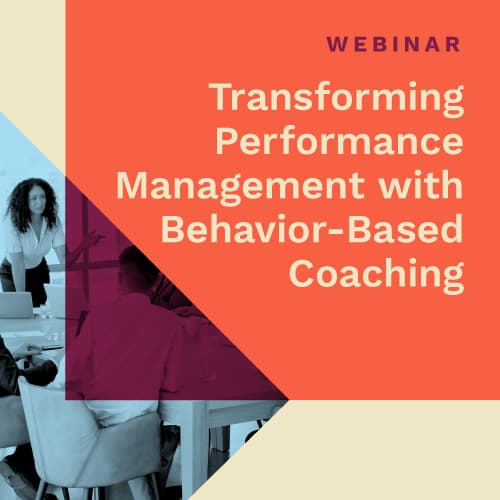Four Most Common Problems Team Building Can Solve
79% of people indicate that a positive employee experience is important or very important to them, but only 22% of companies indicate they are excellent at building a differentiated employee experience (see References section for resources below). With odds stacked against the traditional corporate mindset, how can you break through these barriers to engage employees and cultivate strong, effective teams?
Simple. Utilize personality assessments as a team building tool to boost team morale! They’re engaging, insightful and can be repurposed to benefit individuals and groups in different ways. Understanding the personality drivers behind any behavior and perception roadblock(s) your team is facing is an important first step in your team building journey that serves as the foundation to achieving the goals you are looking to accomplish. Whether you identify with the four common challenges below, or your team dynamics challenges are unique, a personality assessment is a tried and tested tool that can help your team succeed.
Challenge 1. Maintaining Team Unity with Remote Workers
43% of employees work remotely at least some of the time, and of those, 31% spend more than 80% off their time outside of the office.
Technology enables employees to work from generally anywhere these days. This can be beneficial for employee productivity, and catering to different schedules and workstyles, but potentially detrimental to creating unity between team members who don’t connect regularly. Distance can be even more harmful to team engagement if there are already existing disputes among team members.
Once disengaged from their coworkers, it’s easy for an employee to feel disconnected from the company. Using personality assessments can help bridge the gaps between employees that may be experiencing low morale because they’re battling spatial distance. Assessments can help employees understand the actions, workstyles and unseen motivators within themselves and their co-workers that are creating the current disconnect in the team dynamic. Uncovering these differentiators can drastically improve communication effectiveness between employees working from different places. Assessments can provide self-awareness to employees, allowing them to see their differences as strengths and connect with others through increased social intelligence.
Challenge 2. Experiencing Conflict Within the Team
85% of employees at all levels experience conflict to some degree. This costs companies approximately $359 billion in paid employee hours each year.
Conflict is a natural part of working with others but knowing how to manage conflict can save your company billions of dollars and leave your employees with more time to focus on work and less likely to distract themselves and others with unproductive behaviors. The key to team productivity is having the tools to navigate through a conflict and use the knowledge gained as a platform to see unique behaviors or styles as strengths that can and produce a more well-rounded group. Allowing employees to see these positive insights about themselves and others will not only be eye-opening but will also boost individual and team morale, allowing them to feel more satisfaction in their work-product. Most employees are never given the opportunity to participate in conflict management training, leaving organizations susceptible to disengaged employees, lower productivity, and higher risk of turnover.
Challenge 3. Preserving Culture During Organizational Change
60% of corporations report they closed at least one to six M&A deals in 2016. 21% closed more than eleven.75% expect this number to grow over the next several years.
Company expansions inevitably disrupt current team dynamics, resulting in role confusion and uncertainty for the new hybrid teams. Reorganizations blur past values and procedures with the blending in of a new culture. This confusion can leave employees feeling ignored, overlooked and afraid of the changes, reducing the team morale. Akio Toyoda, President and CEO of Toyota Motor Corporation once noted, “Trouble results when the speed of growth exceeds the speed of nurturing human resources.To use the analogy of growth rings in a tree, when unusually rapid growth causes the rings to grow abnormally thick, the tree trunk weakens and is easily broken down.” Team Building Assessments can play the important role of nurturing employees as they experience immense changes and bring new teams together from the get-go to avoid detachment from new and previous employees.
Challenge 4. Decreasing Trend in Overall Engagement and Team Morale
51% of employees are not engaged in their place of employment and 16% are actively disengaged - in other words, very unhappy.
One of the top reasons employees leave companies is a lack of fulfillment. Unfortunately, when an employee is disengaged, their behavior has a ripple effect on the overall group dynamic and can affect team productivity. This can be difficult for managers because we know that job satisfaction isn’t “one-size-fits-all.” Assessments can help employees understand their unique interests and needs that may be lacking in a current role.
While it is only the employee’s job to meet their own needs, understanding what’s missing from their current role can help them uncover ways to meet their needs outside of the office or incorporate some of their interests into their work. If a manager can understand the motivators of their employees, morale can improve and reduce turnover.
Understanding these common roadblocks is crucial to setting the goals relevant to your team building, conflict resolution, or morale-boosting strategy. While strong teams aren’t created overnight (or in one session), assessments are a powerful first step in building the momentum for any team in a motivational slump!
Check out our 4 Common Team Challenges infographic for an easy way to visualize and remember what we’ve just covered!
Get More Insight From Our Assessments for Team Building eBook Series
This topic is featured in the first of our three-part Assessments for Team Building eBook series. Get all the information you’ll need to select an assessment, so you can save time and focus on what matters--your team members. Download the eBook today!
References

